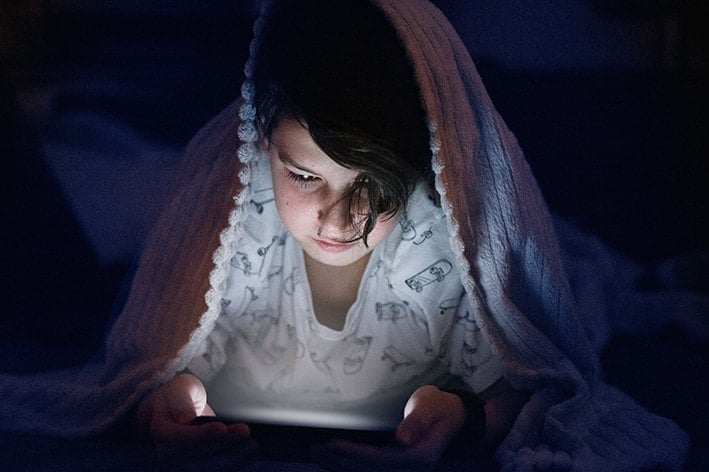
Have you ever put down your device – phone, laptop, or tablet, after spending time on the internet, and just felt completely “yuk”?
Exhausted by the bickering in the comments section? Depressed by how horrible some people are? Overwhelmed and shattered, like your mind is like a dropped mirror, from scrolling through the random gripes of your friends on Facebook.
If you are an adult whose life and identity are well established, with friends who love you and a sense of accomplishment behind you, then you can shrug off this stuff, and decide to just spend less time “doom scrolling” as it is so aptly called.
But for teenagers it’s different. Those social media apps and sites might be where their social life has actually come to live. And they are at their most vulnerable stage, emotionally, in their whole lives.
Out of our protective arms, wanting to be private sometimes, having to spend most of the day away from home, but left to the mercies of a competitive, messed up peer group.
No longer in the reassuring hold of a small tight knit community or extended family, as humans were designed for, but exposed to literally anyone in the world who cares to slip alongside them in “social” media.
You can be overly dramatic about this, but it’s not quite fantasy – last month a teenage girl right here in Sydney was violently raped by a teenage boy after they had met for the first time at Kogarah railway station. He had “groomed” her on social media first, and presumably gained her trust. Her injuries were so grave she was rushed to hospital.
A small group of Sydney parents have started a movement called the Heads Up Alliance. Their purpose is to encourage and enlist parents to delay getting smartphones for their kids, at least until year nine.
He was charged with not one but three counts of assault. It included choking, which is currently the vogue in online pornography, and become such a problem that it’s been made a separate offence. Porn is the number one internet risk for teenage boys since it shapes their sexuality, their idea of what sex is. And so they in turn become a danger to girls.
The more pervasive danger though is simply to mental health.
US researcher Jill Twenge became world famous after documenting the rapid rise of anxiety, depression, and self harm, and suicide (which had been declining in teenagers for many years) which coincided strongly with the take up of mobile devices by teenagers.
“Porn is the number one internet risk for teenage boys since it shapes their sexuality, their idea of what sex is. And so they in turn become a danger to girls”.
Devices mostly (since they are expensive items) bought for them by their parents. Others have questioned Twenge’s findings, but subsequent studies have shown that it’s not just social media alone, but in a mix with other risk factors, which tips a child into a really unhappy place. But there is no doubt that online bullying is causing deaths of young people all over the world, usually when other factors also combine – problems in the home, acute pressure to achieve, loneliness.
Girls are more vulnerable than boys. In my book The Raising Girls Workbook I identify ten building blocks of mental health, and spell help parents pinpoint what might be the vulnerability of their girl. Involved dads, time in nature, not having to grow up too fast are all bulwarks of strong and confident girlhood. Girls are wired to become more socially aware sooner than most boys.

They have sensitive antennae to who likes or dislikes them and those around them. This is a positive trait in a small community – when our senses are attuned to potential conflict or disharmony, we can act to repair any ruptures in our social fabric.
But when your social ecosystem is hundreds of other young people, some of them complete strangers, or even adults there for their own darker reasons, then anxiety is the natural result.
And remember, this access is 24/7 – very many girls wake to check their feeds often into the wee hours. It’s the first and last thing they do each night, not happily, but in a kind of hyper vigilance. So their nervous system is constantly in alarm mode, and they sleep poorly. One in five girls in the western world will spend time with a clinical diagnosis of anxiety, on medication, during their teenage years.
This has to be one of the reasons.
There are many causes for teenage distress – pressure to achieve in everything from school marks to looks to sport, or the fact that their generation may very plausibly die in climate collapse. Or that they have lost that lovely real world hug of being surrounded by eccentric aunties or doting grandmas or other older wiser women and men to make them know they are special. We have hollowed out adolescence and made it into a lonely competitive marketplace, where you feel you are an unsatisfactory product, one step away from the scrap heap.
But there are signs of hope. A small group of Sydney parents have started a movement called the Heads Up Alliance. Their purpose is to encourage and enlist parents to delay getting smartphones for their kids, at least until year nine. (I’d hang out even longer, call me old fashioned, but I’d not have Internet devices in bedrooms until they have graduated from school).
So those kids can be social in the real world instead, relate to family and friends, pets, and nature, and not get distracted and de-skilled in a world of clicks and fleeting glib slogans that pass for friendship.
Thoughtful parents, who trusted their gut feelings, have done this ever since phones were invented, but they’ve been in the minority. Most parents just rolled over to the latest technology or platform, because, well, we’re a herd animal and “what can you do?”.
Raising kids happy and strong takes more than that, including sometimes making them quite cranky with you. It helps if they are not the only ones – and so Heads Up Alliance helps get us all on the same page.
I think they are right on track. I jumped up and down with happiness when I came across them. You should be grateful that I don’t do TikTok, or I might have posted it!
Steve Biddulph was a family psychologist for 35 years. His books are in a million Australian homes. Perhaps you were raised with one of them!
Related:
